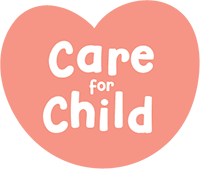"Dried fruits and nuts are renowned nutritional powerhouses with essential vitamins, minerals, healthy fats, antioxidants, and dietary fiber. Incorporating these gems into your baby’s diet can significantly influence their immunity, a vital aspect of their well-being.
Thus, dry fruits hold promise as a wholesome option to meet the nutritional demands essential for optimal
growth and development in babies. However, while they offer numerous benefits, it's crucial to acknowledge the potential for allergic reactions associated with certain dried fruits and nuts. Hence, ensuring the safety of introducing dry fruits to your baby's diet becomes paramount.
In this insightful article by
Care for Child, we lead you to explore the favorable dry fruits for babies. Seeking this knowledge, you can confidently make informed decisions about enriching your baby's diet and nourishing their journey towards a healthy start in life.
When To Start Dry Fruits For Babies?
Introducing dried fruits and nuts into your baby’s diet is a milestone that finds its sweet spot between the ages of 7 and 9 months. This time frame strikes a balance, ushering in the benefits of these nutritional powerhouses while adhering to safety considerations. To mitigate any choking hazards, it is recommended that the inclusion of dried fruits be in the form of a paste or powder, ensuring a texture that aligns with your baby's developmental stage.
Dried fruits for babies such as dates, prunes, and apricots hold potential as delightful toddler snacks, with the provision of smaller, manageable pieces. As children transition beyond the age of five, the scope widens, permitting the introduction of whole-dried fruits and nuts. However, even as the age increases, vigilant supervision remains essential. Ensuring proper chewing practices are followed is pivotal in safeguarding your child's safety and promoting dietary exploration. By understanding this timeline and adhering to these guidelines, you can pave the way for a balanced and wholesome diet that nurtures your baby's growth and health.
Top 10 Dried Fruits for Babies
Dried fruits and nuts stand as nature's nutritional gems, bestowing an array of health benefits upon your precious little ones. As you go on the path of providing wholesome nourishment, here's an extended list of the
top 10 dried fruits and nuts, each with their distinct health advantages:
1. Walnuts
Packed with omega-3 fatty acids, walnuts foster crucial brain development in your baby. The bounty of essential minerals—calcium, iron, magnesium, phosphorus, potassium, and zinc—enriches their growth.
2. Pistachios
Pistachios shine with vitamins A, C, and E, accompanied by thiamine, riboflavin, niacin, pantothenic acid, pyridoxine, and folate. This vibrant blend of vitamins is pivotal in nurturing your child's health.
3. Dried Apricots
Dried apricots boast a treasure trove of fiber, potassium, copper, niacin, iron, and vitamin E. This symphony of nutrients contributes to your child's holistic development, while its remarkable vitamin A content champions eye health.
4. Dates
Energy-packed dates harbor various minerals, including calcium, sodium, phosphorus, magnesium, potassium, and zinc. Their iron concentration is particularly noteworthy, aiding in warding off anemia in children. A medley of B vitamins, vitamin A, vitamin K, and more further enhances their nutritional value.
5. Almonds
Almonds emerge as champions of phosphorus, fortifying bones and teeth. Within their core lies riboflavin and L-carnitine, vital for maintaining healthy brain function. Additionally, their rich dietary fiber content contributes to curbing overeating and promoting wholesome snacking habits.
6. Prunes
Prunes, dense in dietary fiber, offer gentle relief from constipation, a common woe during infancy. Their natural sweetness and nutrient profile make them a nutritious and delectable addition to your baby's diet.
7. Raisins
Raisins, a natural energy source, brim with iron, aiding in preventing anemia. Their potassium content contributes to maintaining a healthy heart rhythm, while their natural sugars present a deliciously sweet alternative to refined sugars.
8. Cashews
Cashews enrich your baby's diet with magnesium, contributing to bone health and zinc, which supports their immune system. Additionally, they offer a delightful creaminess that can elevate various recipes.
9. Dried Figs
Dried figs dazzle with their wealth of dietary fiber, calcium, and potassium. These elements foster healthy digestion and promote bone health, making them a well-rounded choice.
10. Dried Cranberries
Dried cranberries introduce a touch of tartness while delivering antioxidants to support your child's immune system. Their natural sweetness can elevate cereal, yogurt, or even oatmeal.
In your pursuit of nurturing your baby's growth and development, remember that a diverse and balanced diet forms the foundation. Armed with this expansive list of nutrient-rich dried fruits and nuts, you are better equipped to make informed dietary choices that resonate with your child's unique needs. Here's to a journey celebrating health, happiness, and the joy of parenthood.
Conclusion
As you introduce dry fruits into your
baby's diet, you're embracing a path of nourishment that lays the groundwork for their growth and well-being. With many possibilities at your fingertips, the journey becomes a delightful exploration of flavors, textures, and health benefits. Remember, every baby is unique, and their palate will evolve. Begin by incorporating small portions, observing their reactions, and gradually expanding the range of dry fruits they experience. As you craft a culinary voyage that resonates with your baby's preferences and nutritional needs, you are giving them a legacy of wholesome choices. Through each bite of these nutritional powerhouses, you're nurturing their present and investing in their future. May your culinary escapades be filled with joy, discovery, and the satisfaction of knowing that you're weaving health and happiness into every meal. Happy feeding!"
